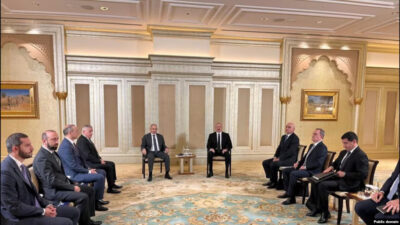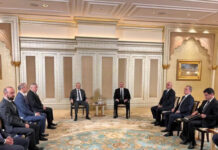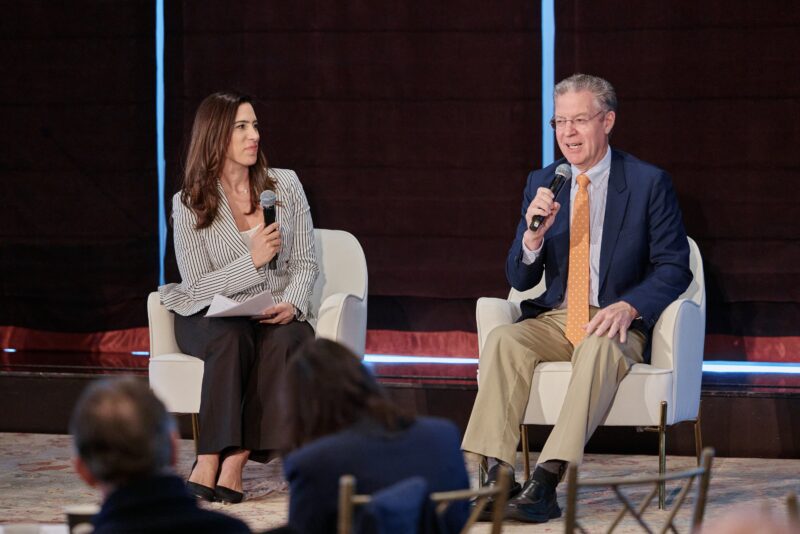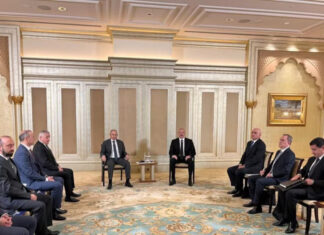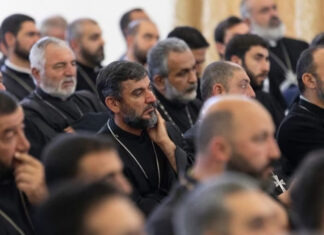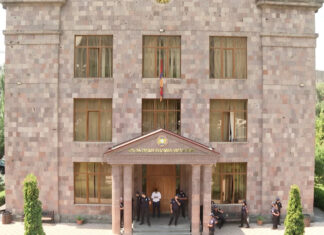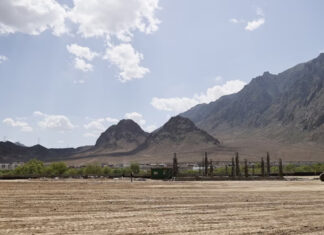NEW YORK — The Armenian General Benevolent Union (AGBU) 93rd General Assembly included an unusually rich variety of events in addition to its formal sessions held at several sites in Manhattan. Hundreds of attendees from around the world were able to learn about AGBU activities in Armenia and throughout the Armenian diaspora, and enjoyed social and cultural experiences during three days in October. In addition, they were able to ponder various aspects of the current critical challenges facing Armenia thanks to a full afternoon of panels and speakers presented on October 11 by the Applied Policy Research Institute of Armenia Foundation (APRI), founded by the AGBU in 2022. Many of the participants were involved in think tanks in the United States and some had held positions in government in the past.

Lara Setrakian, president of APRI Armenia, started the afternoon by providing some general information about this thinktank, which she said emerged out of the defeat of the 2020 Armenian-Azerbaijani war. APRI, she said, is “dedicated to regional peace and sustainable development in the South Caucasus. She explained how it attempted to make its voice heard by Armenian government stakeholders, other think tanks, and media outlets, and suggested a new narrative for Armenia in order to continue building for the future. Later in the day, AGBU Central Board member and president of AGBU Europe Camilio Azzouz took the stage to encourage participation in the APRI membership program to be launched in 2025.

Ara Dinkjian on the oud, accompanied by a keyboard player, performed between sessions.
US Presidential Election and the South Caucasus
Nvard Chalikyan, an APRI Armenia research fellow, introduced John E. Herbst, former US ambassador to Ukraine (during what became called the Orange Revolution) and Uzbekistan, and currently senior director of the Eurasia Center of the Atlantic Council, an influential establishment thinktank in Washington.

Chalikyan noted the recent increased engagement by the US with South Caucasus, while Russia was no longer seen as security guarantor for Armenia, and Armenia was seeking alternative partners like India and France. She asked Herbst about US interests in the South Caucasus and US policy if Trump wins the November elections. (As stated above, this event took place prior to the US elections.) Herbst forthrightly declared: “I think it is fair to say that it is not considered a region of vital interest, although there really is no region in the world where the United States does not see important American objectives and that includes the South Caucasus.”
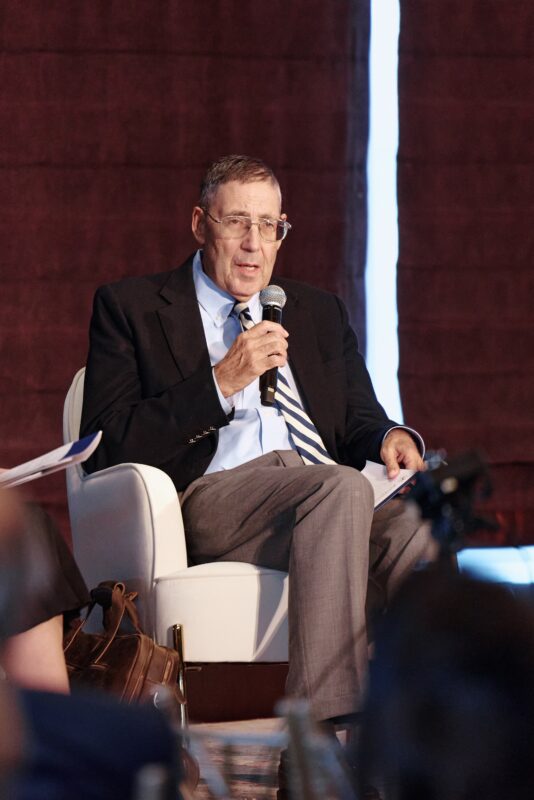
He appeared fixated on Russia as the greatest immediate threat to the US, though in the long term he added that China would become the greater danger, declaring, “I believe the single greatest danger to American national security today comes from a revanchist Russia, which on multiple occasions labeled the United States as its number one adversary.”
